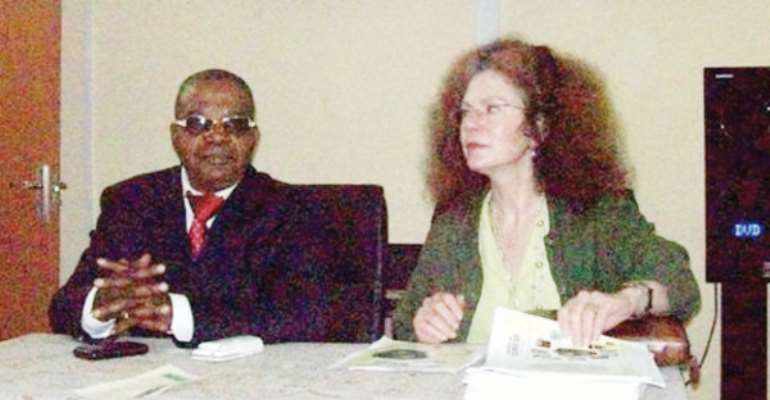Bridging the cultural divide through film

The United State's mission in Nigeria has partnered with the Abuja Film Village International to present the American Documentary Showcase in three cities in Nigeria in the first week of August.
The event featured 11 documentaries by American filmmakers and took place in Kano on August 2 and 3; Abuja on August 4 and Lagos on August 5 and 6. In Abuja, the film village had put a plan in place to hold master classes for Nigerian film professionals.
The classes were led by two of US filmmakers, Kim Snyder and Burt Weiss. Snyder's documentary was one of those screened during the festival. Weiss came with a view to discovering Nigerian documentaries that can be shown in the United States at a film festival in Dallas, Texas, later this month.
Speaking at a press conference in the film village ahead of the showcase, Victoria Sloan, cultural affairs officer for the U.S. Embassy in Abuja, said that the documentaries would show Nigerians a different side of the American public.
"Documentary films are an excellent - a most excellent way - for countries to get to know one another," she said. "They don't have the kind of messages that you see in the blockbuster films. They often are more thought-provoking, perhaps more disturbing, maybe more inspiring because they are based on real life."
Segun Oyekunle, managing-director and chief operating officer of the Abuja Film Village, said he hoped the event would help raise the standards for Nollywood movies. He noted that while Nigeria was the second most prolific producers of movies - behind India's Bollywood - its profits and revenues were near the bottom.
"It is because the quality the length and the script is so poor," he said. "Film documentaries help raise consciousness and inspire people."
However, some at the conference were wary of the organisers' intentions, wondering if the event was an attempt at laundering America's image abroad.
Sloan was quick to reassure that the venture was not a propaganda or profit-making scheme.
"The thing about selling the American idea is that you don't have to buy it," she said. "You can't make a mind accept an idea that it doesn't want to accept."
She said showings in each city would be free and open to the public and that people were free to form their own opinions on each film shown.
Challenges for the venue
Other concerns centred on the Abuja Film Village's continued lack of a permanent site. According to its brochure, the village was slated to be a destination for artists around Nigeria and the world who wanted to improve their art. The village was to feature soundstages, viewing rooms, practical workshops and classes. However, it is currently situated in a two-storey building in Maitama, Abuja.
Mr. Oyekunle assured reporters that the site's challenges were "mostly administrative" and that site's concept design had already been completed. He said that the project had garnered the support of the Minister of Information and that money had been optioned from the National Assembly.
"What is holding us is infrastructure," he said. "We will not go forward unless we have the infrastructure in place, otherwise we'll end up like a lot of satellite towns with structures but no infrastructure."
However, Oyekunle said he could not give any concrete details about upcoming plans as he did not have the numbers at hand and he did not want to be misinterpreted.
Defending the partnership with the village, Ms. Sloan said the site had a track record for holding successful master classes. It had facilities that could accommodate up to 40 people, though the public showings in Abuja would take place at the Cyprian Ekwensi Centre, which can hold up to 500 people.
"There may be other locations where we could do this but, this has the background in filmmaking that we need," said filmmaker Sani Balewa, who attended the conference. "This is opening up a discussion between professionals and a lot can come out of it."
Mr. Oyekunle expressed his hope that the event would pave the way for future cinematic collaborations between the United States and Nigeria. He looked forward to more master classes and more foreign speakers.
"No film industry can live in isolation," he said. "These are the things we want to do to help the Nigerian film industry. You can't quantify the value it will add, but eventually it will show up in the kinds of films that will be made."
